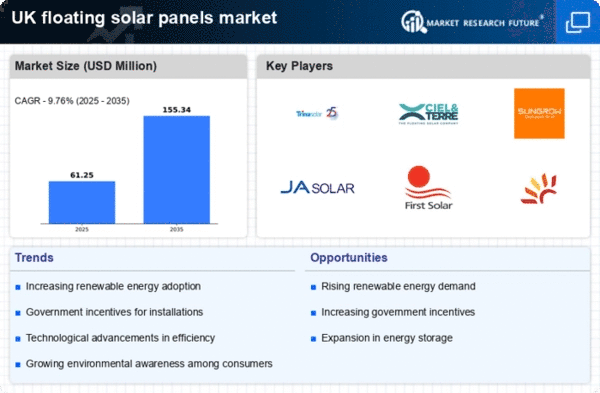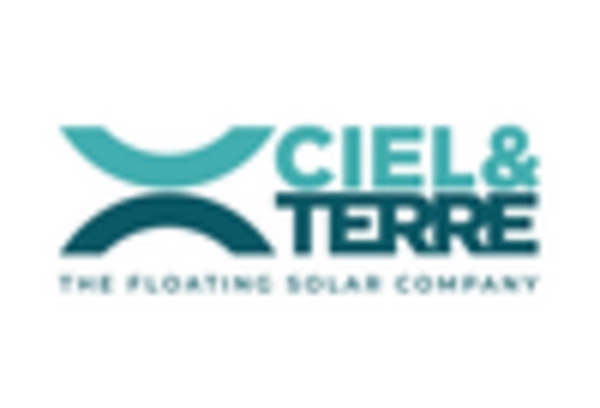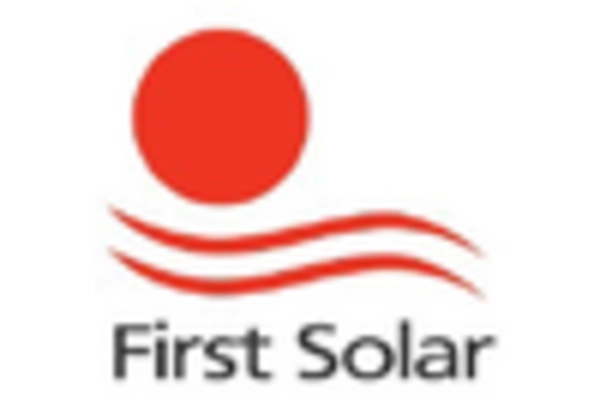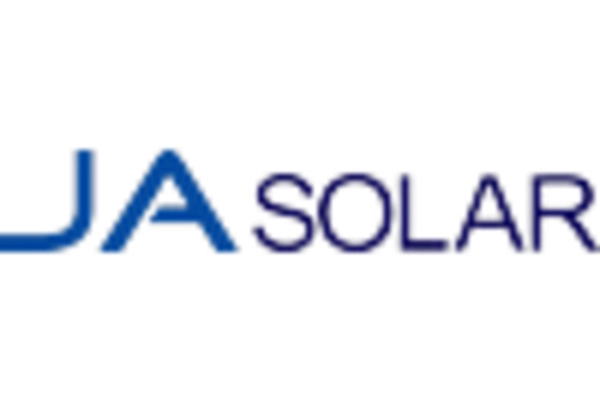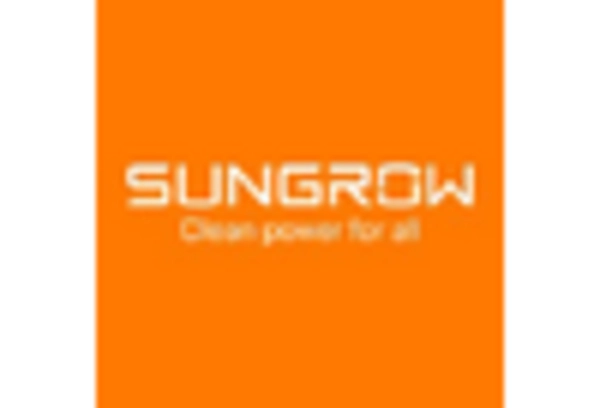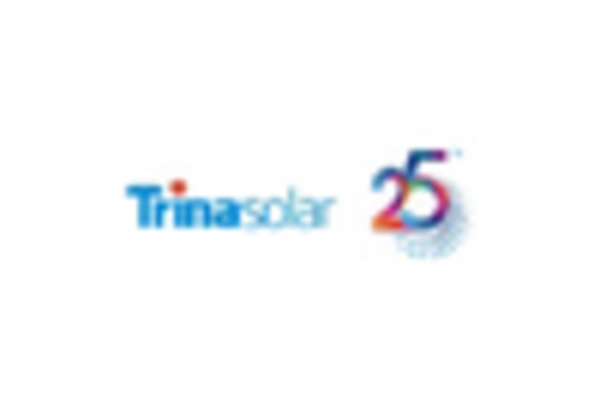Cost-Effectiveness
The floating solar-panels market is increasingly recognized for its cost-effectiveness, which is becoming a pivotal driver for adoption in the UK. The initial investment in floating solar technology has been decreasing due to advancements in manufacturing processes and economies of scale. Furthermore, the operational costs associated with floating solar systems are often lower than traditional ground-mounted solar panels, as they benefit from reduced maintenance needs and increased efficiency due to cooling effects from water. In 2025, the levelized cost of electricity (LCOE) for floating solar is projected to be competitive with other renewable sources, making it an attractive option for energy developers. This financial viability is likely to encourage more stakeholders to invest in the floating solar-panels market.
Regulatory Support
The floating solar-panels market is significantly influenced by regulatory support from the UK government, which is actively promoting renewable energy initiatives. Policies aimed at reducing carbon emissions and enhancing energy security are creating a conducive environment for floating solar projects. The UK government has introduced various schemes, including feed-in tariffs and renewable obligation certificates, which incentivize the development of renewable energy sources. As of 2025, the government aims to increase the share of renewables in the energy mix to 70% by 2030, which includes a focus on innovative technologies like floating solar. This regulatory framework is likely to bolster investor confidence and stimulate growth in the floating solar-panels market.
Space Optimization
The floating solar-panels market benefits from the unique advantage of space optimization, particularly in densely populated regions of the UK. With land scarcity becoming a pressing issue, utilizing water surfaces for solar energy generation presents an innovative solution. Floating solar installations can be deployed on reservoirs, lakes, and other water bodies, thus avoiding competition for land use with agriculture or urban development. This approach not only maximizes energy production but also minimizes ecological disruption. As of 2025, the UK has seen a notable increase in floating solar projects, with over 100 MW of capacity installed, showcasing the potential for further expansion. The ability to harness solar energy without compromising land resources is likely to drive growth in the floating solar-panels market.
Rising Energy Demand
The floating solar-panels market is experiencing a surge in demand driven by the increasing need for renewable energy sources in the UK. As energy consumption rises, particularly in urban areas, the pressure on traditional energy systems intensifies. Floating solar panels offer a viable solution by utilizing water bodies, thereby conserving land space while generating clean energy. The UK government has set ambitious targets to achieve net-zero emissions by 2050, which further propels the adoption of renewable technologies. In 2023, renewable energy accounted for approximately 43% of the UK's electricity generation, indicating a strong shift towards sustainable energy solutions. This trend is likely to continue, positioning the floating solar-panels market as a critical player in meeting future energy needs.
Environmental Sustainability
The floating solar-panels market aligns closely with the growing emphasis on environmental sustainability in the UK. As climate change concerns escalate, there is a heightened awareness of the need for clean energy solutions that minimize ecological impact. Floating solar panels not only generate renewable energy but also help in reducing water evaporation from reservoirs, thus conserving water resources. Additionally, these installations can improve water quality by providing shade, which inhibits algae growth. In 2025, the UK is expected to see an increase in projects that prioritize environmental benefits, further driving the floating solar-panels market. The dual advantage of energy generation and environmental protection positions floating solar as a key player in the transition towards a sustainable future.


